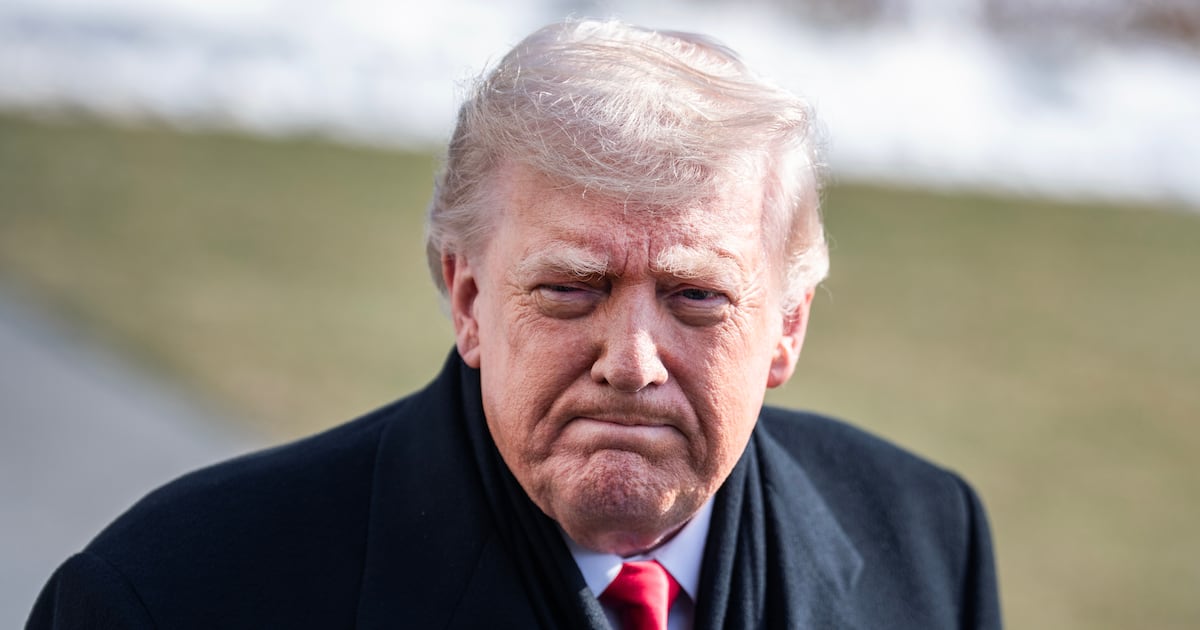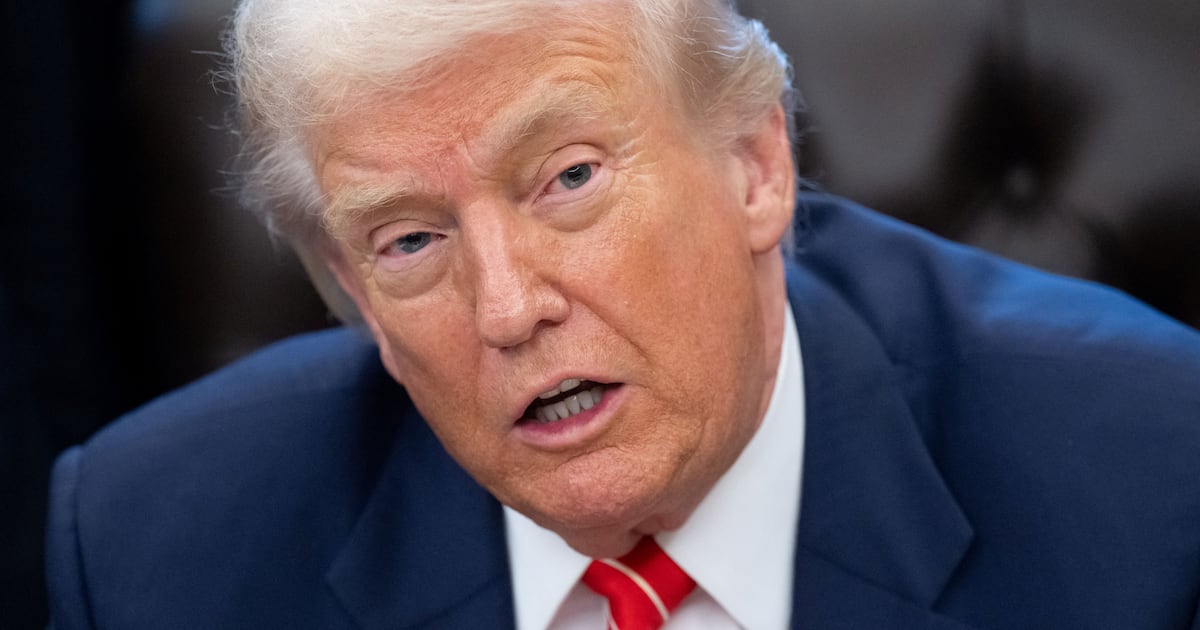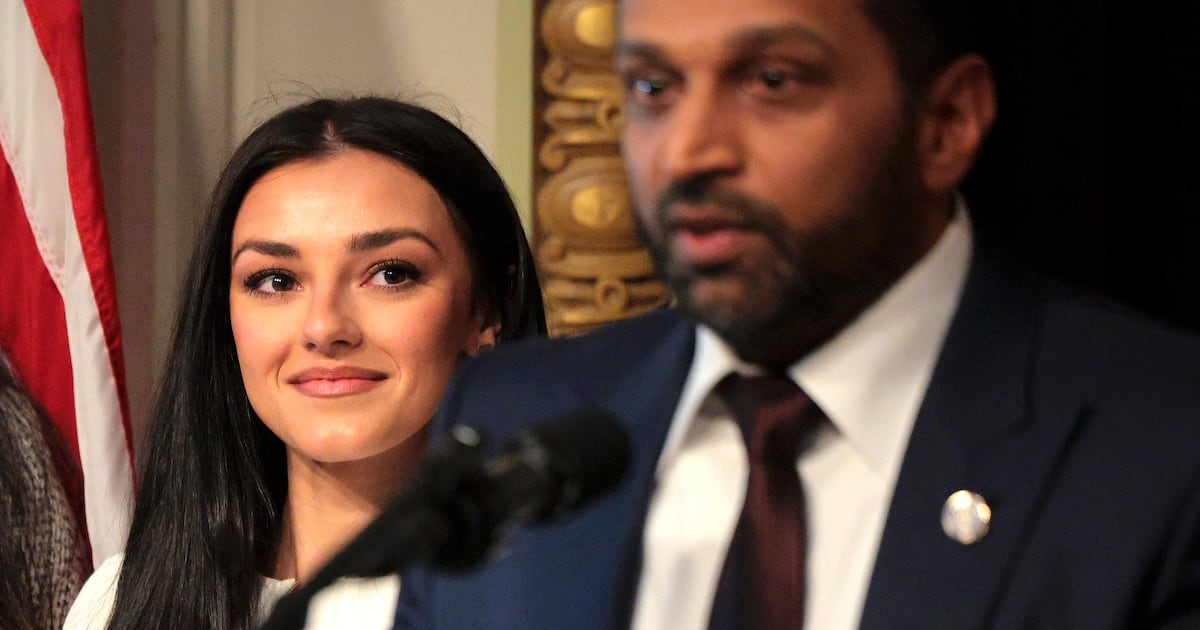An accused Taliban fighter held for more than 13 years in Guantanamo Bay is demanding his release, saying that since President Obama has declared the war in Afghanistan is over, there are no longer any legal grounds to hold him.
It’s believed to be the first time a Guantanamo detainee has argued that the government’s authority to detain him evaporated with end of military operations against the Taliban, which began in 2001 following the 9/11 attacks. But when U.S. attorneys respond, they could argue that, in fact, hostilities haven’t come to a conclusion, and there are still grounds to hold the man. That could put them the strange position of undercutting the president, and arguing that just because the commander-in-chief says the war is over doesn’t necessarily make it so.
“If they say that, that is the practical effect of what they’d be saying,” Brian Foster, one of the attorneys for the detainee, Mukhtar al Warafi, told The Daily Beast.
Lawyers for Al Warafi, who was has effectively spent his entire adult life in jail, filed a motion in the U.S. District Court for the District of Columbia last month to grant a writ of habeas corpus, which would require the government to release Al Warafi. The motion pointed to Obama’s public statements about the war, including his State of the Union Address, when he declared that “our combat mission in Afghanistan is over.”
“President Obama has made it clear in authoritative statements…that the United States’ war in Afghanistan and its combat mission in Afghanistan ended at the close of 2014,” the lawyers wrote.
Foster added, “When the war ends, the authority to do things under the laws of war ought to end.”
Al Warafi was captured in November 2001 by members of the Northern Alliance, who teamed up with U.S. forces to topple the ruling Taliban. He says that he had come to Afghanistan from his home in Yemen as a medic, and not a combatant. Al Warafi has unsuccessfully petitioned for his release on those grounds.
Lawyers for Guantanamo detainees have been anticipating the end of hostilities in Afghanistan as a triggering event that would allow them to bring new habeas challenges on behalf of their clients. But novel though al Warafi’s case and his arguments are, the potentially bigger implications might be contained in the government’s reply, which is expected in the coming months.
If U.S. attorneys argue that the war in Afghanistan isn’t really over, they’ll be raising fundamental questions about who gets to decide when a conflict has come to an end, and what practical and legal consequences the words of a president actually have.
“There’s no easy formula that explains where, exactly, to draw the line separating ‘war’ from ‘the end of the conflict,’” Marty Lederman, a senior Justice Department official in Obama’s first term, wrote on the blog Just Security in regards to Al Warafi’s case.
While the statements of a president, including Obama’s that “the longest war in American history is coming to a responsible conclusion,” may be “relevant” to the question of when the war is really over, “they are not determinative,” Lederman wrote.
That determination may come from how the fighting is actually playing out on the ground, legal experts have said. If U.S. combat troops and Taliban fighters are no longer shooting at each other, or at least not very often, then arguably the conflict really has ended.
But Obama has said that some U.S. forces will remain in Afghanistan, primarily to conduct counterterrorism operations and to support Afghan troops. Whether that means the U.S. is still engaged in an armed conflict is debatable. And if the conflict is still active, al Warafi might still be considered a lawful prisoner, despite what Obama has said.
The administration has other options. It could transfer al Warafi back to Yemen. Indeed, he’s part of a group of Yemeni men held at Guantanamo who’ve been cleared for transfer to their home country, though administration officials have been reluctant to do that while the nation is racked by civil war and remains a hotbed for al Qaeda operations.
Lederman said the government might acknowledge that the armed conflict in Afghanistan is over, but that under a congressional authorization to use military force, it has a certain “wind down” authority, and should be given time to make arrangements to transfer al Warafi.
Whatever the government’s response to Al Warafi’s argument, the Obama administration has sent other signals that it considers the war in Afghanistan to have been winding down for some time and that Taliban fighters can be freed. Most notably, in May 2014 Obama traded five Taliban fighters held at Guantanamo for Army Sgt. Bowe Bergdahl, who was a prisoner of the Taliban-allied Haqqani Network. U.S. officials said that exchange was in keeping with longstanding traditions of trading prisoners of war when a conflict is coming to its end. The president chose to make the deal even though U.S. intelligence officials warned that some of the men were likely to return to hostilities against American forces and interests.
Al Warafi’s case has potential implications for other Guantanamo prisoners, as well, including al Qaeda fighters held in the facility. Foster said he and his colleagues at the law firm Covington & Burling, which represents accused Taliban as well as al Qaeda fighters, chose al Warafi’s case as a first test because he was only ever named as a member of the Taliban, offering a clearer argument for why he should be set free now.
However, Foster said his team plans to use the same logic about an end of hostilities, and Obama’s pronouncements that the so-called war on terror must come to an end, to petition for the release of accused al Qaeda members.
In that, they may face a much higher legal challenge, not to mention a political one.
“It’s an argument of growing strength with respect to Taliban detainees, though it probably hasn’t yet reached critical mass yet. It’s a weak argument with respect to al Qaeda detainees,” Benjamin Wittes, an expert on detainee policy at the Brookings Institution, told The Daily Beast. “The war against al Qaeda is clearly not over, and has never been coextensive with hostilities in Afghanistan. None of the President’s statements that I’m aware remotely suggest that hostilities against al Qaeda are at an end.”
Foster argued that the al Qaeda organization to which the detainees belonged “is not the same organization now. It has nothing to do with the people who've been in Guantanamo for 13 years.” He granted that the legal argument for freeing them is more complicated than for al Warafi, which is why the team started with a client that had no al Qaeda connections.
“But more complicated doesn’t mean it’s wrong,” Foster said.





